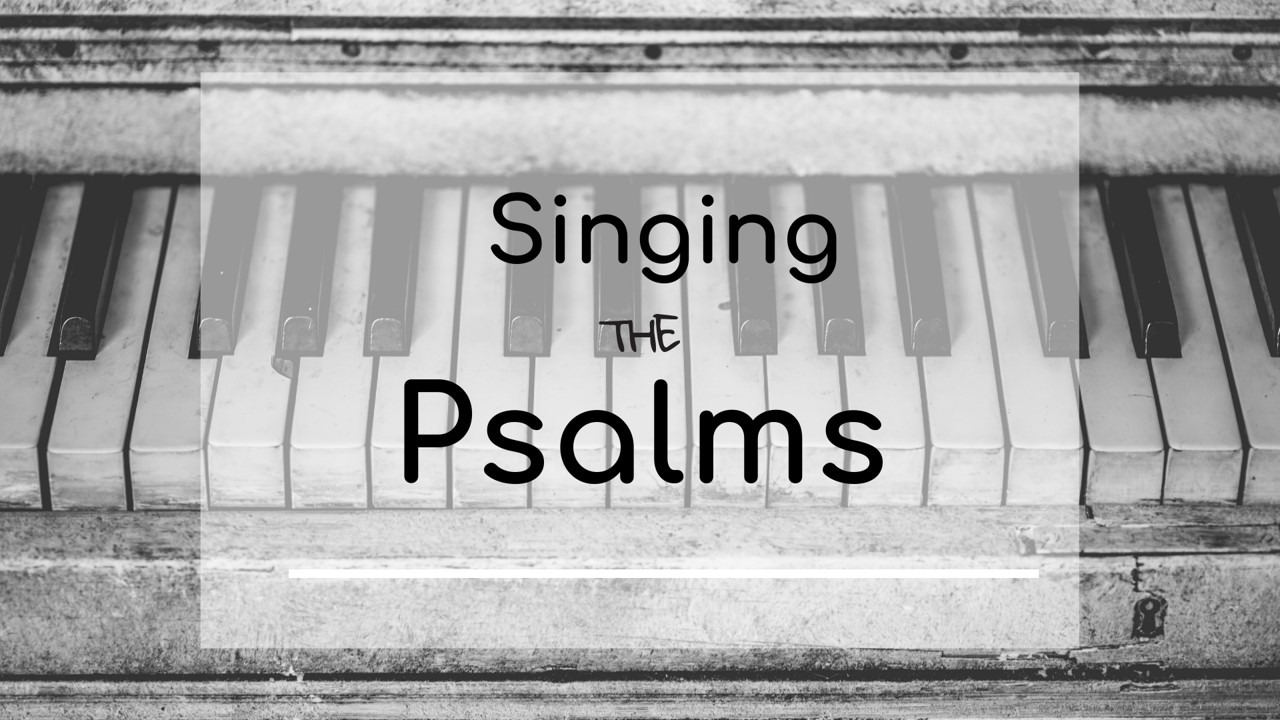Reformation and Psalm Singing

In Reformed circles, October is often designated as ‘Reformation month.’ Unquestionably, there is more focus on our Protestant heritage during these 31 days than at any other time during the year. Whether that is a good thing or not is a debate for a different day. However, I want to use this time to introduce you to some reformation topics or people, which you may not be familiar. We are going to start with the subject of Psalm singing and the Reformation.
Much could be said about the history of Psalm singing in the Early Church (See Early Church historian Eusebius and his comments on obeying God’s command to sing Psalms) and during the Middle Ages, in both the eastern and western church (Note the details provided in The Oxford History of Christian Worship). However, during the Reformation there was a revival, not only of congregational singing (Roman Catholic worship was performance oriented and not participatory), but also of psalmody (Terry Johnson provides some of the history of Psalm singing in the book Give Praise to God).
This rediscover was large in part due to the labors of John Calvin. In a twenty-four-year span, Calvin oversaw the organizing of the Genevan Psalter (1643). His commitment to this project was rooted in an understanding that Scripture regulates what is done in worship. Since God instructs that one of the things, we sing in worship are Psalms, then we should so (Eph. 5:19). As a result, Clement Marot, a court poet, and leading lyricist of the day, provided renderings for the first 30 Psalms. Theodore Beza, Calvin’s eventual successor, provided the other 120. Louis Bourgeois wrote 83 original melodies, and an unknown hand contributed tunes for most of the remaining texts. In all, 150 Psalms were put in metrical form and almost each one had a distinctive tune. The Genevan Psalter went on to inspire others of similar kind, especially in England and Scotland. It wasn’t until the mid-nineteenth century that psalmody began to disappear for Protestant liturgies, and only in the last one hundred has it been absent from Presbyterian worship.
Why were Reformation leaders, like Calvin, intent on encouraging the singing of Psalms? One reason was the formative impact it had on the worshipper. Paul instructed the Colossians (Col. 3:15) to let the peace of Christ rule in your hearts, to which indeed you were called in one body. And be thankful. But the question is, how do you let the peace of Christ rule in your heart? And how do you have a thankful spirit, particularly when you’re facing hardship (Like Paul was, when he wrote this letter from a Roman prison)? You heed Col. 3:16: Let the word of Christ dwell in you richly, teaching and admonishing one another in all wisdom, singing psalms and hymns and spiritual songs, with thankfulness in your hearts to God. Peace in the soul and gratitude in the heart can come via the singing of Psalms.
Sadly, many in the church today lack peace and thankfulness. Perhaps one reason why is because there is a lack of Psalm singing in Evangelical worship. As Carl Trueman discusses in his book The Wages of Spin, miserable Christians (which on some level we all are) need something to sing. One thing God has given us is the Psalter. The Psalms provide language to help explain our misery. They direct us back to God in our misery, and they give us hope through our misery. May the Lord use the singing of Psalms in our lives as well. —Pastor Clif